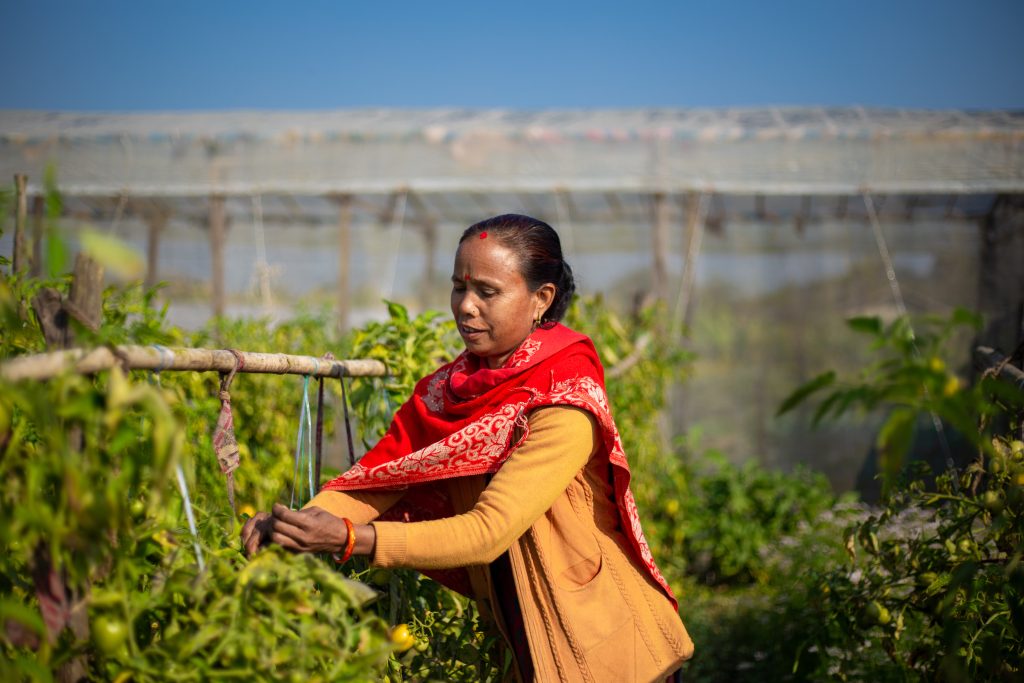
Starting with the small patch of land for vegetable cultivation, now Belmati Chaudhrary has extended her vegetable cultivation land up to 1000 square meter. This is thanks to a project where she has learned to utilize climate resilient farming practises.
Belmati Chaudhary, 45, lives between undulating green fields in the tiny village of Laljhadi Rural municipality in Chandev. She has a total of 11 family members along with her husband who does daily wage labour in order to cover the daily household expenses.
Belmati used to grow some vegetables in a nearby land for her daily use and sell some of the remaining ones at a nearby town. Now, with the help from SAKSHAM project funded by Felm Nepal and implemented by a local organization Li-Bird, she has been provided various tools, technologies and practices to improve her farming. These include a plastic tunnel, drip irrigation system, mulching practices, waste water collection tank, soil cement tank, and various diversified seasonal and off-seasonal seeds.
Starting with the small patch of land for vegetable cultivation, now with hard work she has extended her vegetable cultivation land up to a notable 1000 square meter. From the extended land, she can now generate an additional income of one lakhs and twenty thousands Nepali rupees from her vegetable production.
Changing weather poses a challenge
She has faced several difficulties along the way. Belmati’s perseverance was put to the test by unpredictable market situation, as well as changing weathers. Various vegetable diseases and pests have been a burden as well. Nevertheless, with dedication and passion, she is now able to cultivate with more climate adaptive technologies and resilient seed varieties including use of organic pesticides and bio manures.
She says that she intends to raise her income to 2 lakhs Nepali rupees in the upcoming year, and expresses her gratitude to the SAKSHAM project for all of its encouragement and assistance in improving the family’s standard of living. She hopes to learn more about climate-resilient farming in the future.
The goal of the ongoing SAKSHAM project is to improve livelihood and well-being of marginalized and climate vulnerable families in Kanchanpur and Doti districts of Sudurpaschim Province, Nepal, through building economic and climate resilience in the communities.
This work is done with the financial aid of Finnish development cooperation.